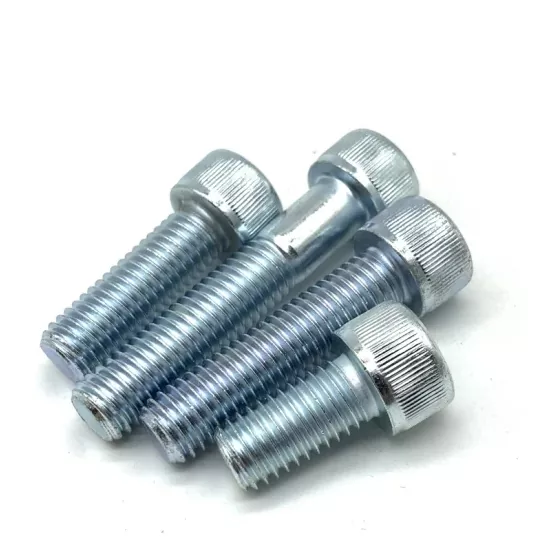Socket Screws: The Essential Fastener for Precision and Strength
2024-09-26
Socket screws, also known as socket head screws, are vital components in various mechanical applications. Renowned for their unique design and robust performance, these fasteners offer significant advantages over traditional screws. In this blog, we’ll explore what socket screws are, their types, applications, and benefits.
What Are Socket Screws?
Socket screws are characterized by their cylindrical head with a recessed drive, which typically requires a hex or Allen wrench for tightening and loosening. This design allows for a more secure grip and greater torque application, making them ideal for high-stress environments where reliability is crucial.
Types of Socket Screws
1. Socket Head Cap Screws:
- Description: These are the most common type, featuring a larger cylindrical head that allows for high torque applications.
- Applications: Used in machinery, automotive components, and structural assemblies where strength and stability are necessary.
2. Socket Set Screws:
- Description: Often called grub screws, these screws are typically headless and are used to secure one object within or against another.
- Applications: Commonly found in securing gears, pulleys, and other mechanical parts, ensuring they stay in place.
3. Socket Shoulder Screws:
- Description: These screws have a shoulder that allows for precise positioning of components.
- Applications: Ideal for use in jigs, fixtures, and alignment applications where parts must be accurately positioned.
4. Low-Profile Socket Screws:
- Description: With a lower head height, these screws are designed for tight spaces where standard socket screws may not fit.
- Applications: Frequently used in electronics and compact assemblies where space is at a premium.

Benefits of Socket Screws
1. High Torque Capability: The recessed design allows for greater torque application without slipping, reducing the risk of stripping and ensuring a secure fit.
2. Versatility: Available in various materials, sizes, and finishes, socket screws can be adapted for different applications and environmental conditions.
3. Space Efficiency: Their cylindrical shape enables installation in tight spaces, making them ideal for compact designs.
4. Ease of Use: Socket screws can be easily installed and removed using standard hex wrenches, simplifying the assembly process.
5. Aesthetic Appeal: With their clean, low-profile design, socket screws provide a polished look, making them suitable for visible applications.
Applications of Socket Screws
Socket screws find use in a wide range of industries, including:
- Automotive: For securing engine components, chassis parts, and other critical assemblies.
- Aerospace: Essential in aircraft manufacturing where high strength and reliability are paramount.
- Machinery: Commonly used in industrial equipment, robotics, and manufacturing processes.
- Electronics: Ideal for devices and appliances with limited space, providing secure and precise fastening.
- Furniture: Used in the assembly of furniture pieces, ensuring durable connections that withstand use.
Conclusion
Socket screws are an essential fastener choice for anyone seeking precision, strength, and versatility. Their unique design and ability to handle high torque applications make them ideal for a variety of industries and uses. By understanding the different types and applications of socket screws, you can select the right fasteners for your projects, ensuring secure and reliable connections. Investing in quality socket screws is a smart decision for enhancing the performance and durability of your assemblies.


